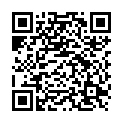|
|
|
| Module code: KI598 |
|
2V+2P (4 hours per week) |
|
5 |
| Semester: 5 |
| Mandatory course: no |
Language of instruction:
English |
Assessment:
Project work
[updated 26.02.2018]
|
KI598 Computer Science and Communication Systems, Bachelor, ASPO 01.10.2014
, semester 5, optional course, technical
KIB-GDEV (P221-0077) Computer Science and Communication Systems, Bachelor, ASPO 01.10.2021
, optional course, technical
KIB-GDEV (P221-0077) Computer Science and Communication Systems, Bachelor, ASPO 01.10.2022
, optional course, technical
PIBWI43 Applied Informatics, Bachelor, ASPO 01.10.2011
, semester 5, optional course, informatics specific
PIB-GDEV (P221-0077) Applied Informatics, Bachelor, ASPO 01.10.2022
, semester 6, optional course, informatics specific
PIB-GDEV (P221-0077) Applied Informatics, Bachelor, SO 01.10.2026
, semester 6, optional course, informatics specific
Suitable for exchange students (learning agreement)
|
60 class hours (= 45 clock hours) over a 15-week period.
The total student study time is 150 hours (equivalent to 5 ECTS credits).
There are therefore 105 hours available for class preparation and follow-up work and exam preparation.
|
Recommended prerequisites (modules):
KI100 Programming 1
KI190 English 1
KI200 Programming 2
KI290 English 2
KI300 Software Engineering 1
KI400 Software Engineering 2
[updated 06.08.2014]
|
Recommended as prerequisite for:
|
Module coordinator:
Prof. Dr.-Ing. André Miede |
Lecturer: Prof. Dr.-Ing. André Miede
[updated 24.07.2012]
|
Lab:
Technical Systems Lab (8207)
|
Learning outcomes:
After successfully completing this course, students will be able to apply their programming, algorithmic/mathematical, and project management skills
for solving basic problems during the design and development of computer games.
[updated 26.02.2018]
|
Module content:
The course introduces the basic concepts and challenges of designing and
developing computer games. The focus is mainly on technical aspects such as
understanding typical algorithms (and their underlying mathematical
concepts) and implementing them using typical programming languages. In
addition, state-of-the-art game technologies, i.e., game engines, can be used
for the project(s).
1. Introduction and Overview
2. Game Production/Processes and Teams
3. Game Design
4. Game Architecture
5. Collision Detection
6. Computer Graphics
7. Artificial Intelligence
8. Selected Special Topics from the Field of Game Development
[updated 26.02.2018]
|
Recommended or required reading:
Main references:
Game Design and Development
Clinton Keith: Agile Game Development with SCRUM, 2010
Steve Rabin: Introduction to Game Development, 2010
Jeannie Novak: Game Development Essentials: An Introduction, 2011
Game Design
Scott Rogers: Level Up! The Guide to Great Video Game Design, 2014
Jesse Schell: Die Kunst des Game Designs, 2012
Ernest Adams: Fundamentals of Game Design, 2009
Suggested further reading:
Will Goldstone: Unity 3.x Game Development Essentials, 2011, ISBN-13: 978-1849691444
Penny Baillie-De Byl: Holistic Game Development with Unity: An All-In-One Guide to Implementing Game Mechanics, Art, Design, and Programming, 2011, ISBN-13: 978-0240819334
Chris Crawford: The Art of Computer Game Design
Ulrich Schmidt: Game Design und Produktion: Grundlagen, Anwendungen und Beispiele
Katie Salen, Eric Zimmermann: Rules of Play: Game Design Fundamentals, 2003, ISBN-13: 978-0262240451
[updated 26.02.2018]
|
Module offered in:
WS 2019/20,
WS 2018/19,
WS 2017/18,
WS 2016/17,
WS 2015/16,
...
|


